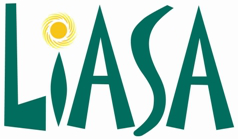Speaker
Ms
Lindall Adams
(Stellenbosch University)
Description
The discussion paper attempts to emphasize that socio-economic background and educational schooling play a role in information seeking. The paper will mainly focus on the current educational schooling differences between the Government schools in South Africa, the lack of school libraries, and inadequate library collections of public libraries in disadvantage areas and the differences in resources used by learners in poorer areas to access information.
Information seeking requires the necessary skills for searching information in an effective and efficient manner. Education and in particular the education a student receives at school will affect how they search for information. South African students come from culturally diverse backgrounds and those attending previously disadvantaged schools will have limited experience on seeking and accessing information. Spink & Cole, (2001: 57) points out that people from a poorer background deals differently with information. Thus, the alternative methods use to seek and access information will derive from their socio-economic backgrounds and educational schooling.
The education system in South Africa is complex and influenced by politics, economics, and educational beliefs (Maile, 2004: 112). It is a common knowledge that still today; previously disadvantaged schools have limited learning resources and lacks school libraries and computer rooms. In most cases, parents are poor and have limited or no literacy training, and cannot read or write. Parents from children at previously disadvantaged schools pay very low school fees because they do not have the money to send their children to former Model C schools where they will receive better education (Ndimande, 2006: 145).
The former Model C schools are located in predominantly white suburban areas. Although Model C schools ceased to exist, and have accepted learners from diverse backgrounds, they still use better resources than previously disadvantaged schools and expect that parents pay more for a better education. The former Model C schools are fully equipped with learning resources, school library and computer rooms to aid learners with the necessary computer literacy skills.
Learners from former Model C schools have a higher Matriculation passing rate (Calitz, 2010) and entrance level to Higher Education, contributed to a direct result from exposure to the use of their academic literacy skills and technological skills needed for information seeking. A South African student brought up within a poorer social background, lacks the financial privileges that contributes to a level of education suitable to enhance a platform where information seeking activities best explore.
References
Calitz, H. 2010. SAIRR today: good news in South African schooling – 21st May 2010. Available: http://www.sairr.org.za/sairr-today-1/sairr-today-good-news-in-south-african-schooling-21st-may-2010. (Accessed 7 May 2011).
Maile, S. 2004. Equal access to education: who can afford? Education as Change, 8(2): 56-73.
Ndimande, B. 2006. Parental “choice”: the liberty principle in education finance. Perspectives in Education, 24(2): 143-156.
Spink, A. & Cole, C. 2001. Information poverty: information-seeking channels used by African American low-income households. Library & Information Science Research, 23: 45-65.
Primary author
Ms
Lindall Adams
(Stellenbosch University)

